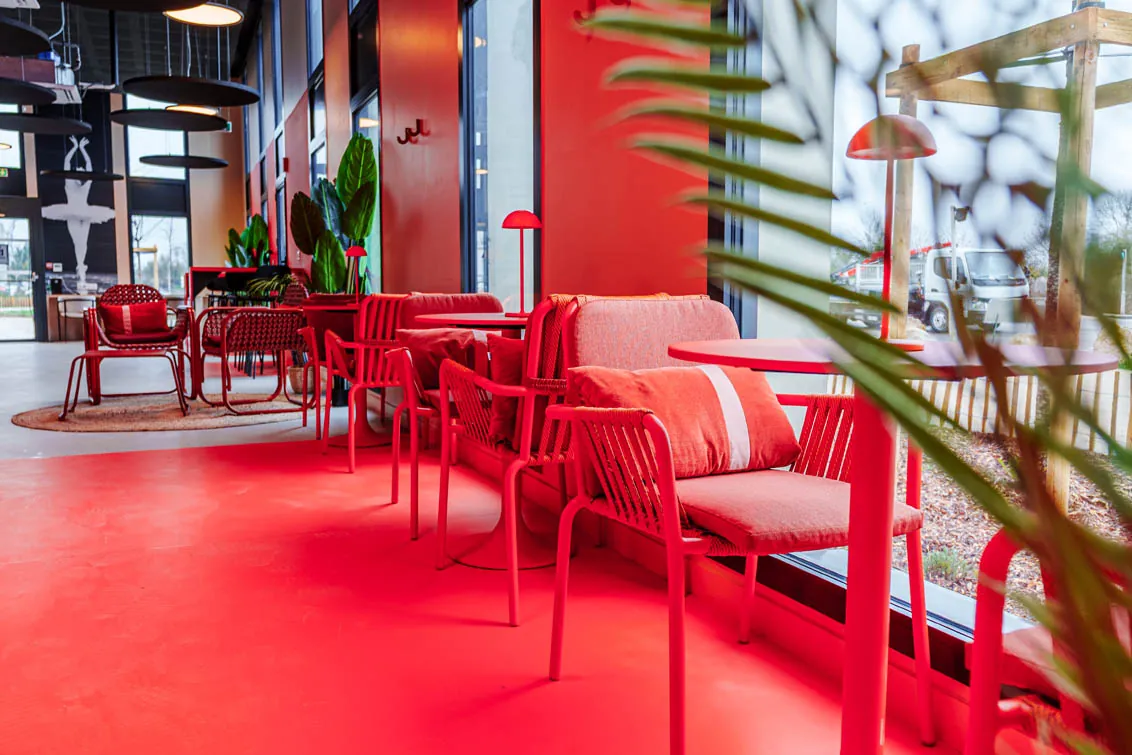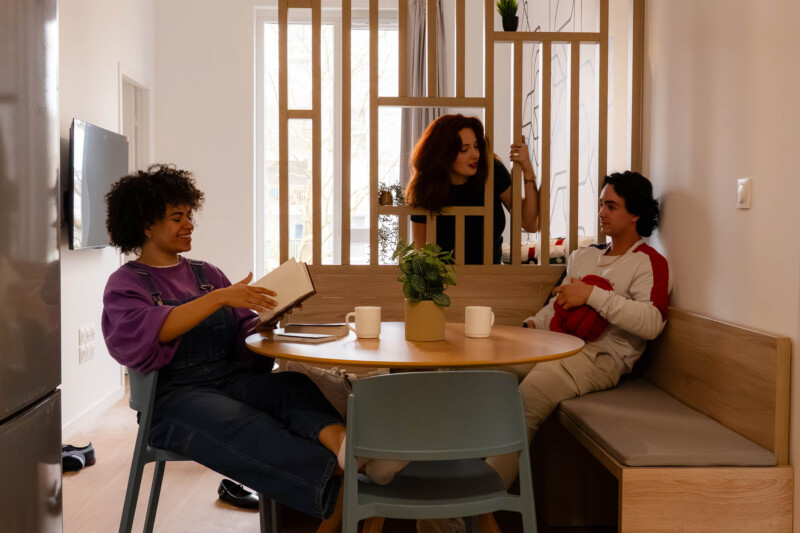What you need to know about life in a student residence!
Accommodation is often one of the biggest expenses for students. In Paris and other major student cities, residences designed for students and young professionals offer an attractive solution. Their main advantage lies in their proximity to educational establishments. UXCO Student offers a detailed overview of the advantages and limitations of living in a student residence.

How do you choose the ideal student accommodation?
The choice of student accommodation is based on several key criteria:
- Financial resources,
- Accessibility to place of study,
- Comfort requirements,
- Desired level of autonomy.
A growing challenge for students
Finding student accommodation is becoming increasingly complex. In major cities, rising rents combined with a limited supply of rental accommodation make the search particularly difficult. Moderately-priced accommodation, particularly in public residences, is highly sought-after, which restricts its accessibility.
With demand far outstripping supply, many students are finding it difficult to find accommodation in the run-up to the start of the academic year.
What are the housing options for students?
With almost 2.9 million students in France, situations vary according to profile. Some stay with their parents or family, while others have to move to a new city for their studies.
The choice depends mainly on budget: some opt to rent a studio or apartment in the private sector, while others opt for shared accommodation to cut costs. Student residences, often chosen at the start of a course, are generally located close to campuses.
Student residences: a practical and suitable option
Student residences are particularly popular among accommodation solutions. They fall into two main categories:
- university residences managed by the CROUS
- private residences run by independent operators
Student hostels offer a variety of formulas: mixed or unmixed, with half or full board, and sometimes with set departure times.
In private residences, rents are often higher than in cités U, but they include appreciated services such as :
- laundry facilities,
- a gym,
- internet access,
- communal areas,
- security,
- and parking.
The apartments are furnished, equipped and ready to move into, and operate in a similar way to traditional rentals: lease, security deposit and, often, guarantor requirements.
Focus on CROUS university residences
CROUS, a public body attached to the Ministry of Higher Education, plays an essential role in supporting students. It offers affordable accommodation, mainly for students on scholarship, in some 780 university residences across France, often in close proximity to campuses.
Why choose a student residence? The main advantages
Living in a student residence offers many advantages, especially for young people moving to a new city for their studies.
A strategic location close to educational establishments
Designed to meet the needs of students, residences are generally located close to universities, schools or training centers. This reduces commuting times and facilitates access to courses, offering significant daily convenience.
A friendly environment
Student residences are more than just accommodation. Thanks to their common spaces (sports halls, shared kitchens, relaxation areas), they encourage exchanges and promote the creation of social links. Living with other students is a great way to build relationships, help each other out and share convivial moments.
Fully-equipped, serviced apartments
Apartments are generally fully furnished and equipped, so you can settle in quickly and easily. Numerous services are included in the rent: laundry, internet connection, caretaking, communal areas and sports facilities. These amenities simplify student life and improve day-to-day comfort.
Simplified formalities to make moving in easier
Entering higher education can be stressful, with registration and administrative formalities. Student residences, particularly private ones, offer all-inclusive packages including utilities (water, internet and sometimes even electricity). This turnkey solution means students don’t have to deal with multiple subscriptions or formalities, making settling in smoother.
Student residences: what limits should you consider?
Student residences are ideal for young people at the start of their university career, particularly for adapting to a new environment and making new friends. However, there are a number of disadvantages to consider before making your choice.
A sometimes high cost
In large cities, the rent for a private residence can be substantial, often higher than that for a room in a cité U, a shared apartment or a private studio. Services such as cleaning, internet access and security are often included. These services are one of the reasons why students consider renting to be so expensive. There are also housing aids available to help reduce expenses.
Group living constraints
Living in a shared space implies respecting certain rules. Some residences, particularly student residences, impose restrictions: visiting hours, noise limits or controlled access to communal areas. These rules can limit the autonomy of students in search of freedom.
Standardized space with little scope for personalization
Student residence accommodation is furnished and ready to use, making it easy to move in. However, this formula reduces the scope for personalization. The rooms are often small, and the furniture not always suited to individual tastes or needs. To remedy this, UXCO Student calls on experienced space designers to create modern, warm living spaces perfectly adapted to students’ needs.
A balance between comfort and support
Despite these constraints, student residences offer a good compromise between practicality and sociability. To optimize your chances of finding accommodation, solutions like Garantme can act as guarantor for over 1,500 student residences in France. By enhancing your rental file, this service facilitates access to housing and reassures landlords, whether private or institutional.




